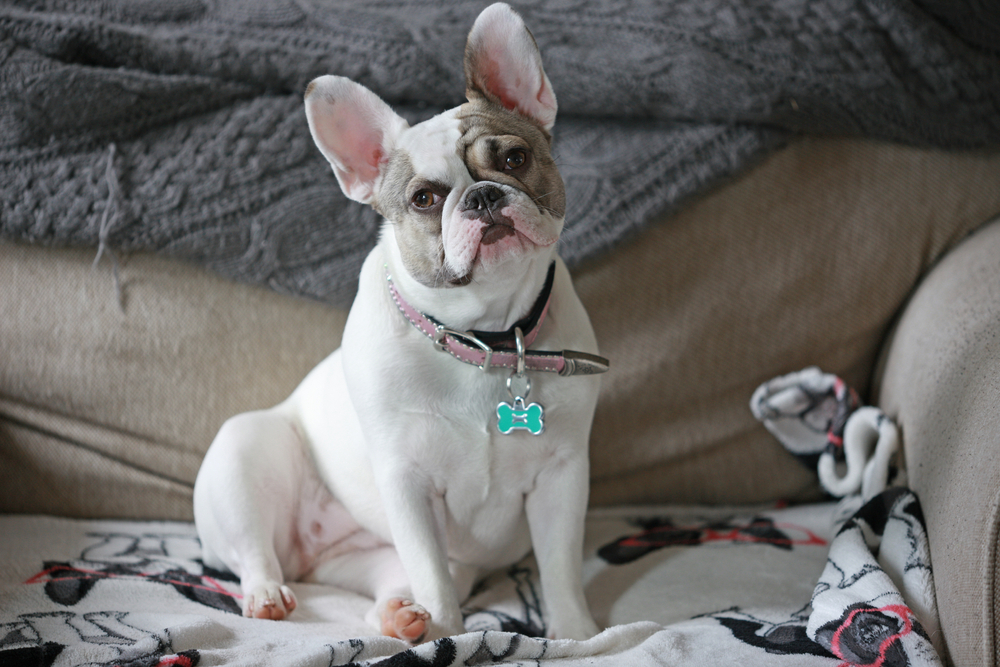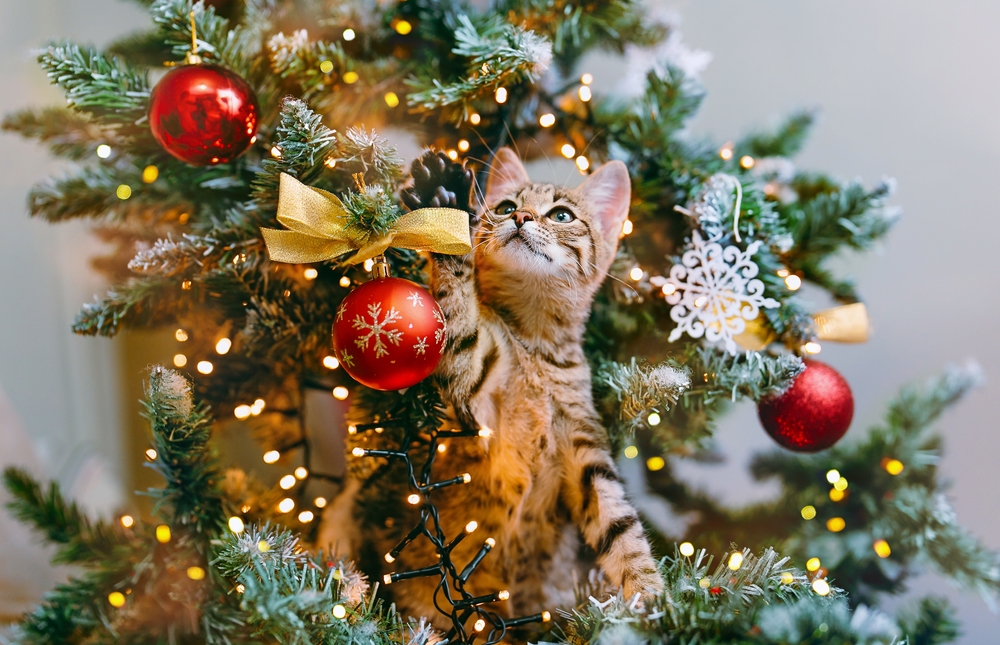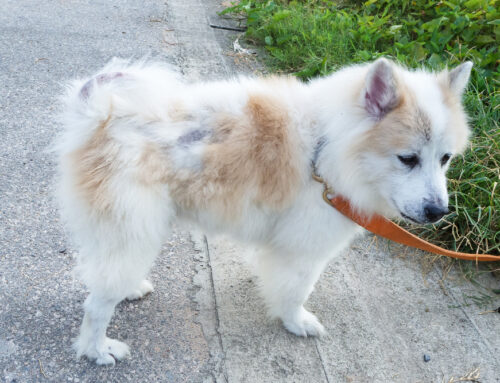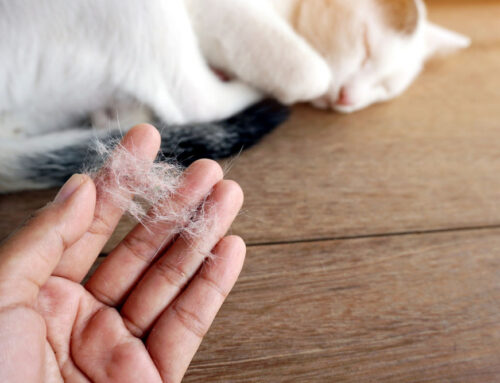As another holiday season approaches, you may have gotten gifts for everyone on your list except your pet. What should you get for your furry pal? Our Sixes Animal Hospital at Bridgemill team believes that no pet gift is better than the gift of safety and good health. By preventing your four-legged friend from experiencing a veterinary emergency, you help keep them happy and healthy—and by your side for years to come. If your pet could write, they would put the following safety precautions on their holiday wish list.
#1: Pet-safe treats
Nothing beats a tasty holiday treat, but you should refrain from filling your pet’s stocking with chocolate or slipping them ham slices under the dining room table. Many holiday foods that people enjoy are dangerous for your furry pal, so don’t share the following with your pet:
- Ham
- Turkey leg
- Mashed potatoes
- Casseroles
- Desserts
These delicious dishes contain multiple hazardous ingredients. If your pet ingests a food that has a high sodium and fat content, seasonings and spices, bones, dairy products, chocolate, and xylitol, they can experience toxicity, pancreatitis, or a gastrointestinal (GI) obstruction. Gift your furry pal pet-safe treats such as:
- Skinless, boneless, unseasoned turkey breast
- Plain mashed sweet potatoes
- Fresh, roasted, or sautéed veggies (e.g., green beans, carrots, squash)
- Bananas, apples, melons, or berries
- Plain canned pumpkin
- Low-fat plain yogurt
If your pet has a sensitive stomach, avoid giving them any foods intended for people, and feed them pet-safe treats you know they have eaten and enjoyed before. Fill a rubber Kong with your pet’s favorite canned food, xylitol-free peanut butter, spray cheese, plain yogurt, or tuna concoction, and give your furry pal a wonderful treat. Another option is to whip up homemade pet treats while cooking your holiday feast.
#2: Greenery that is toxic to pets
Your pet doesn’t know the difference between toxic and nontoxic plants when nibbling on holiday greenery. Before bringing home festive seasonal plants, ensure they are safe for your furry pal to be around, especially if they decide to add some roughage to their diet. The American Society for the Prevention of Cruelty to Animals (ASPCA) offers a toxic and nontoxic plants list, so you can assess a plant’s potential toxic effect on your pet. While poinsettias are often thought to be highly toxic to pets, they typically only cause mild GI irritation that may result in vomiting. However, you need to prevent your pet from coming in contact with or nibbling the following toxic holiday plants:
- Amaryllis
- Kalanchoe
- Cyclamen
- Holly
- Mistletoe
- Lilies
- Yews
#3: Pet-savvy guests
Not everyone has a pet at home, so when guests visit you for the holidays, ensure they know how to treat your four-legged friend appropriately. Many pets are wary of strangers encroaching on their territory, and a celebration’s hubbub can increase your furry pal’s anxiety. Instruct guests to let your pet approach and leave on their own terms when interacting, and to refrain from chasing, cornering, or pestering your pet.
#4: A pet-proofed Christmas tree
Your pet naturally wants to investigate the Christmas tree, with all the twinkly lights and shiny ornaments. However, your tree is loaded with hazards that could harm your unsuspecting pet, including:
- Metal ornament hooks
- Salt dough and fragile ornaments
- Tinsel and garland
- Electrical cords
- Stagnant tree stand water
- Tree needles
- Tree sap and oils
To avoid disaster, erect a baby-gate barrier between your pet and your Christmas tree. Ensure your furry pal cannot jump over the barrier and topple the tree, or tear into the presents piled at the base. Most pets eventually ignore the tree if it offers no tasty tidbits. However, some pets enjoy climbing the branches and gnawing the intriguing decorations. If you know your pet will be unable to leave the Christmas tree alone, you may need to opt for a small tabletop tree or forgo it entirely to protect your pet.
#5: Updated pet identification

An updated collar and ID tags are always a good pet gift. Take a look at your pet’s jingling tags, and see whether you can still see your entire phone number. Is the number current? Outfit your pet with new tags and a fancy collar embroidered with your phone number. If your pet has not been microchipped, gift them this permanent identification form during the holiday season. You can add an extra measure of security by including a GPS tracker that you fasten to your pet’s collar, as microchips do not currently offer that capability. By updating your four-legged friend’s IDs, they can easily be reunited with you if they dash out the door as you welcome holiday guests.
By checking off each item on your pet’s holiday safety wish list, you can help them enjoy happy and safe holiday festivities. If your furry pal gets into trouble this holiday season, call our Sixes Animal Hospital at Bridgemill team.






Leave A Comment